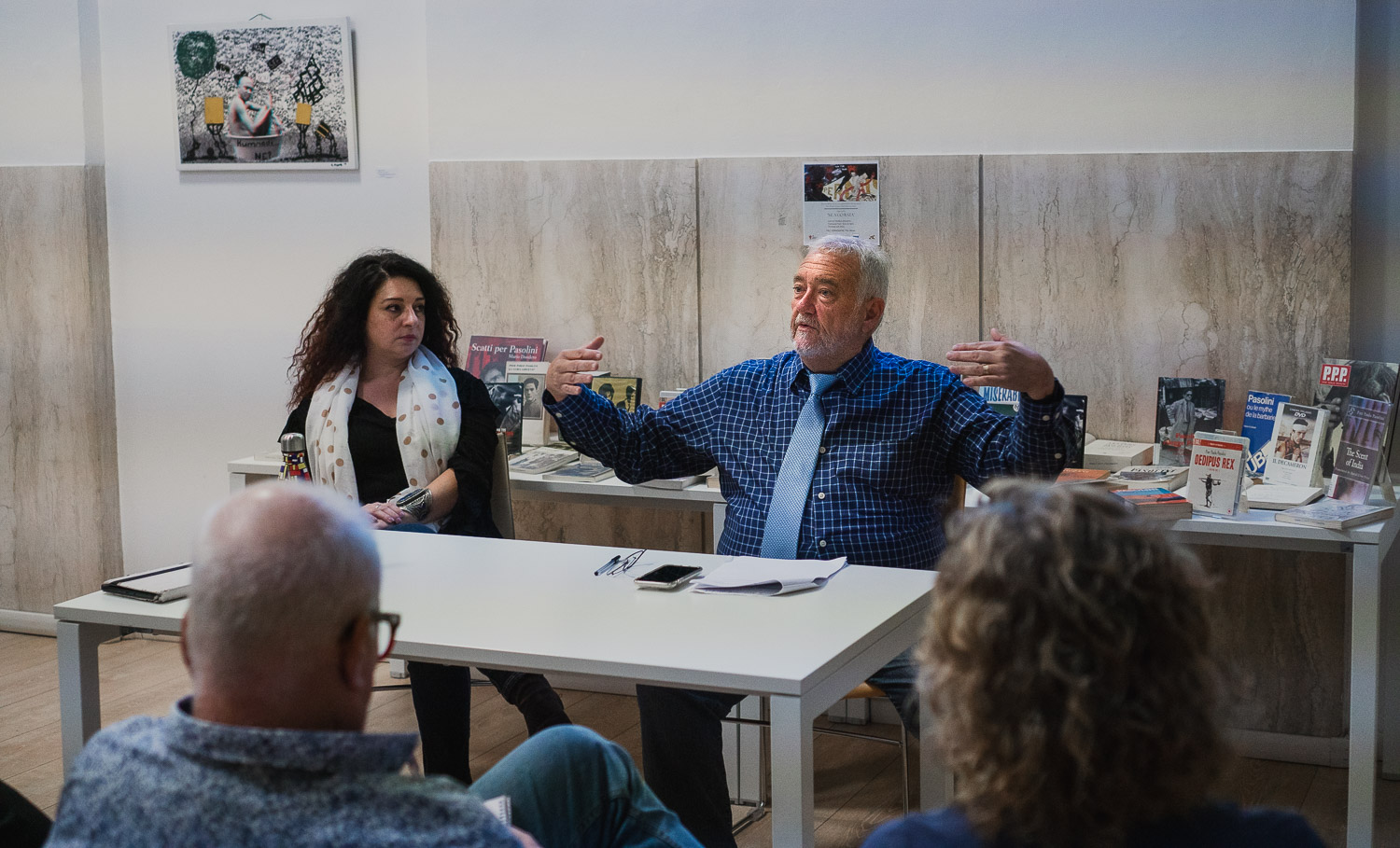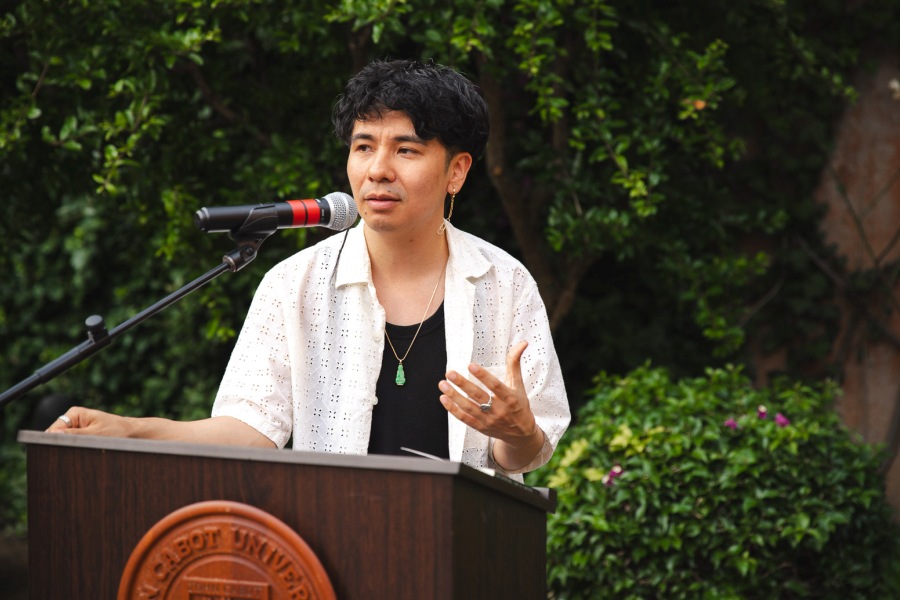John Cabot University Hosts Special Event on Pasolini's Centenary

From left: Professors Nefeli Misuraca and David Castronuovo
The JCU Departments of English Language and Literature and Modern Languages and Literatures presented a special one-day event Spazio Pasolini, on October 11th, 2022.
Pier Paolo Pasolini (1922-1975) was an Italian writer, poet, director, and artist, whose contributions play a significant role in Italian culture. Pasolini, who is considered one of the defining public intellectuals in 20th-century Italy, is most known for his controversial critiques of Italian society in the 60s and early 70s. The event was held in commemoration of the 100th anniversary of Pasolini’s birth.
As part of the event, Professors David Castronuovo and Nefeli Misuraca hosted a panel on Pasolini’s film Medea (1969) starring American-Greek opera singer Maria Callas. Pasolini’s Medea is a modern adaptation of Euripides’ tragedy set in ancient Greece. Maria Callas plays the infamous Medea, whose jealousy drives her to murder her children as an act of retaliation towards her husband. The play explores themes of conflict, spirituality, and morality in Greek society.
Professor Castronuovo pointed out that Pasolini was primarily interested, politically and psychologically, in the clash between the two worlds of Medea and her husband Jason; the theme of filicide held secondary importance for the director. Pasolini put Maria Callas, the most famous opera singer of the 20th century, into the non-singing role of Medea; he coached her to use her expressive face and body in minimalist ways that were more appropriate to film than to the operatic stage. As a result, she successfully embodied Pasolini’s cinematic vision.
Professor Misuraca Medea discussed Medea as a character in ancient texts and during the Middle Ages. The woman behind the travels of the Argonauts has been often reduced to the figure of the angry, scorned wife who went crazy and killed her own children in revenge for her husband’s betrayal. Interestingly, the majority of her myth is forgotten. For example, her dedication to Jason, the numerous times in which she saved him and his crew, and her unwavering love for him. During the Middle Ages, Christine de Pizan changed the way we look at Medea and chose to tell her story excluding her filicide. This way, she managed to make Medea a round and not a flat character.
The Frohring Library chose to pay tribute to Pasolini by showcasing some of his numerous books, films, and writings on campus. Professor Federica Capoferri gave an introduction to the books and films exhibited during her class IT 317 Roots of Italian Identities. Professor Rosa Filardi and Leonardo Gervasi contributed to the event by screening their short film dedicated to the Italian intellectual, Traces of an Absence. On the occasion of the anniversary, the Biblioteca Nazionale Centrale, Rome’s main public library, is organizing an exhibit called “Pasolini 100.”





